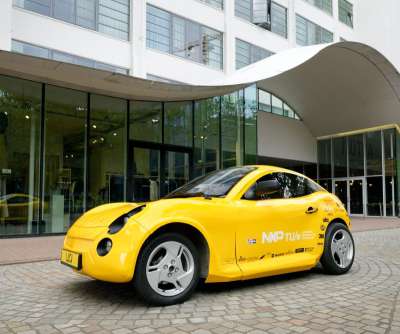WUR developing new aviation fuel based on mixture of acetone and alcohol from wet bio-waste streams
Green Car Congress
OCTOBER 11, 2021
In the Netherlands, Wageningen University & Research (WUR) and its partners have developed a new type of aviation fuel produced using bio-based waste streams from the agriculture industry. The BioJet Fuel project is evaluating the complete value and production chains of biofuels from wet organic waste streams for the aviation sector.


















Let's personalize your content